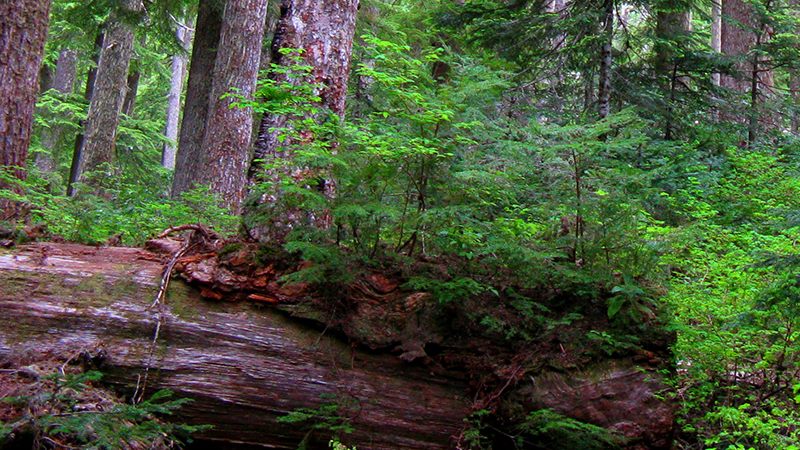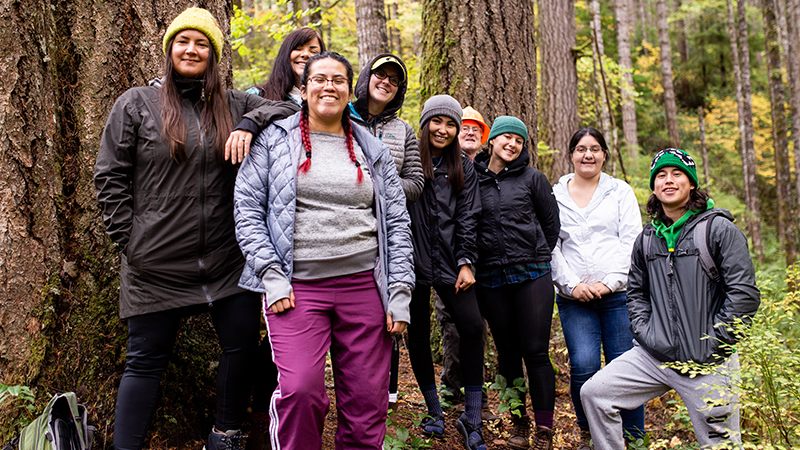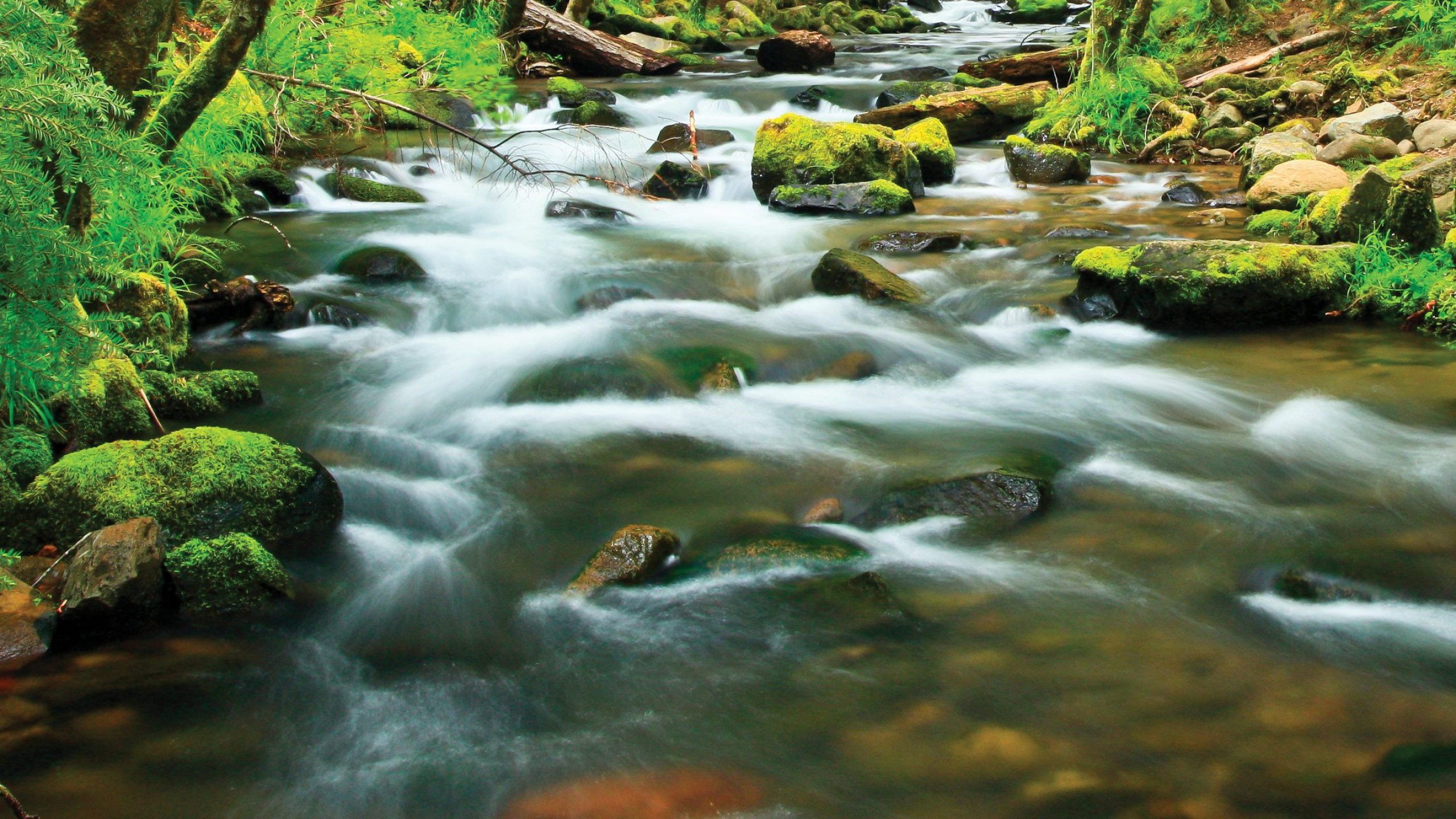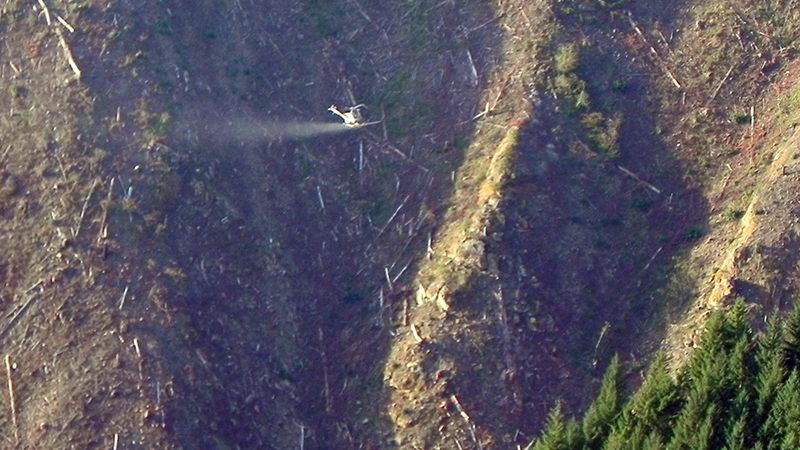Resilient Forestry
What is Resilient Forestry?
Resilient forestry refers to a set of practices and principles aimed at creating and managing forest ecosystems that are better equipped to withstand and recover from environmental adversity, such as wildfires, pests, diseases and climate change. The concept of resilient forestry recognizes the dynamic nature of ecosystems and works to enhance their ability to adapt and bounce back.
Resilient forestry involves a range of practices that focus on promoting health, diversity and functionality of forests. This may include:
MORE on What is Resilient Forestry?
What We Are Doing
Beyond Toxics provides leadership within statewide coalitions to link forest protections with climate mitigation while pressing for major reforms of forest laws and practices.
Beyond Toxics' history of research and grassroots organizing shaped the state discussion on aerial herbicide spray and public risk, watershed health, slash burning, biomass and other critical issues related to forest management. We advocate for modernizing Oregon’s forest practices with underlying values of climate and ecosystem protection, environmental justice and rural community health.
Background
In 2019 Beyond Toxics stood among ten environmental protection nonprofits collaborating closely with Governor Brown. Together, we achieved a groundbreaking agreement that marked the turning point in curbing aerial herbicide sprays and propelling Oregon towards a new era of riparian protections.
In October of 2021 representatives from environmental organizations and the timber industry took action to protect fish and wildlife habitat streams on over 10 million acres of forestland in Oregon by reaching a new agreement to overhaul the Oregon Forest Practices Act. Conservation and fishing groups joined timber representatives to agree on key modernizations to Oregon’s outdated forest management practices.
The parties agreed on a framework for:
Soon after, the Governor announced this historic agreement to the world. We remain hopeful that a strong and collaborative science process will drive future changes that address the damaging effects of climate change and a warming climate.
Projects

Natural Climate Solutions
Natural climate solutions are activities that protect or enhance the ability of natural and working lands to sequester and store carbon or reduce greenhouse gas emissions while maintaining or increasing climate resilience, water quality and quantity, human well-being, and biodiversity. These practices offer simple, proven solutions for both reducing the future impacts of climate change and confronting the impacts communities and land managers are already contending with, including drought, heatwaves, flooding, and wildfire.
In Oregon's 2023 legislative session, SB 530, Natural Climate Solutions, was passed by both the Senate and the House of Representatives in June 2023 and subsequently signed by Gov. Kotek as part of the package of bills known as the “Climate Resilience Package.”

Resilient Forestry Tours
Join us for one of our next resilient forestry tours in 2024:
Saturday, July 13 - Shady Creek Forest, Walton OR
Sunday, July 21 - Shady Creek Forest, Walton OR
REGISTRATION FORM COMING SOON!
Most years we partner with small forest owners to host guided tours in biodiverse forests. These projects demonstrate how good forest management can protect drinking water, biodiversity and sequester carbon on the land, all of which are practices that benefit future generations.

Protecting Watersheds in Oregon's State Forests
State forests are highly valued as wildlife habitat, protection of viable watersheds for fish and drinking water, and places to hike, camp, fish, picnic or seek peace and quiet. Yet, the Oregon Department of Forestry manages our public state forests more like industrial timber tracts rather than for healthy ecosystems. Learn more

Oregon’s Industrial Forests and Herbicide Use Reports
Beyond Toxics published the first comprehensive report on herbicide applications in industrial timber plantations and state forests. We’ve presented this information to state legislators, agencies and communities during over 50 town hall-style meetings across the state. We’ve reached out to communities by hosting over 50 town hall-style meetings across the state. We successfully protected old-growth forests by winning a ban on the use of a tree-killing herbicide following the death of 2,000 majestic Ponderosa pines in Central Oregon. And we helped shape the requirements for pesticide spray notification, buffers for drinking water, homes and schools and accurate reporting of individual chemical use as part of the successful SB 1602 (passed in early 2020). Learn more





